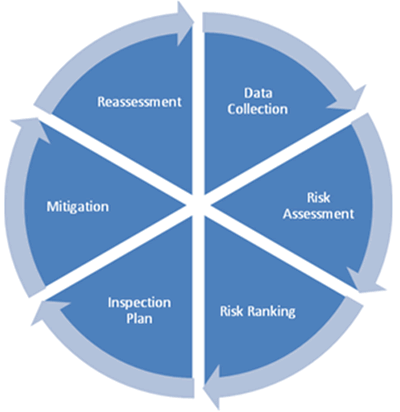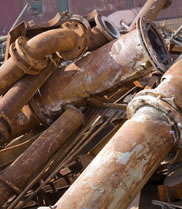SOLUTIONS
Risk Based Inspection
RBI is a systematic approach that enables users to make informed business decisions regarding inspection and maintenance expenditure. The fundamental objective of implementing a successful RBI programme is to create an inspection strategy that clearly defines.
- The equipment items which require inspection;
- The optimal periodicity of inspections; and
- The correct techniques that should be performed to identify defects that a particular component is likely to develop.
The RBI process is based on the following activities:

The fundamental reasons for implementing RBI are to:
- Measure and understand the risks associated with current inspection programs
- Provide a basis for shifting resources from lower to higher risk equipment
- Enhance the cost effectiveness of inspection and maintenance resources
- Monitor risk reduction as a result of implementing inspection practices
- Use historical data to facilitate the maintenance planning process for future installations
- Allow management to review safety in an integrated, cost effective manner
- Increase reliability of equipment and operation thereby extending asset life
- Minimise loss of production through selecting cost effective inspection programs without compromising safety and risk to environment
MES has the in-house capabilities to implement RBI programs for clients in Oil & Gas industry. Using industry software and our experience in Asset Integrity Management, we are able to work closely with our clients to provide tailored solutions to maximise values. MES has applied RBI principles, such as RBI studies and Corrosion Risk Assessments, to Offshore and Onshore installations.



